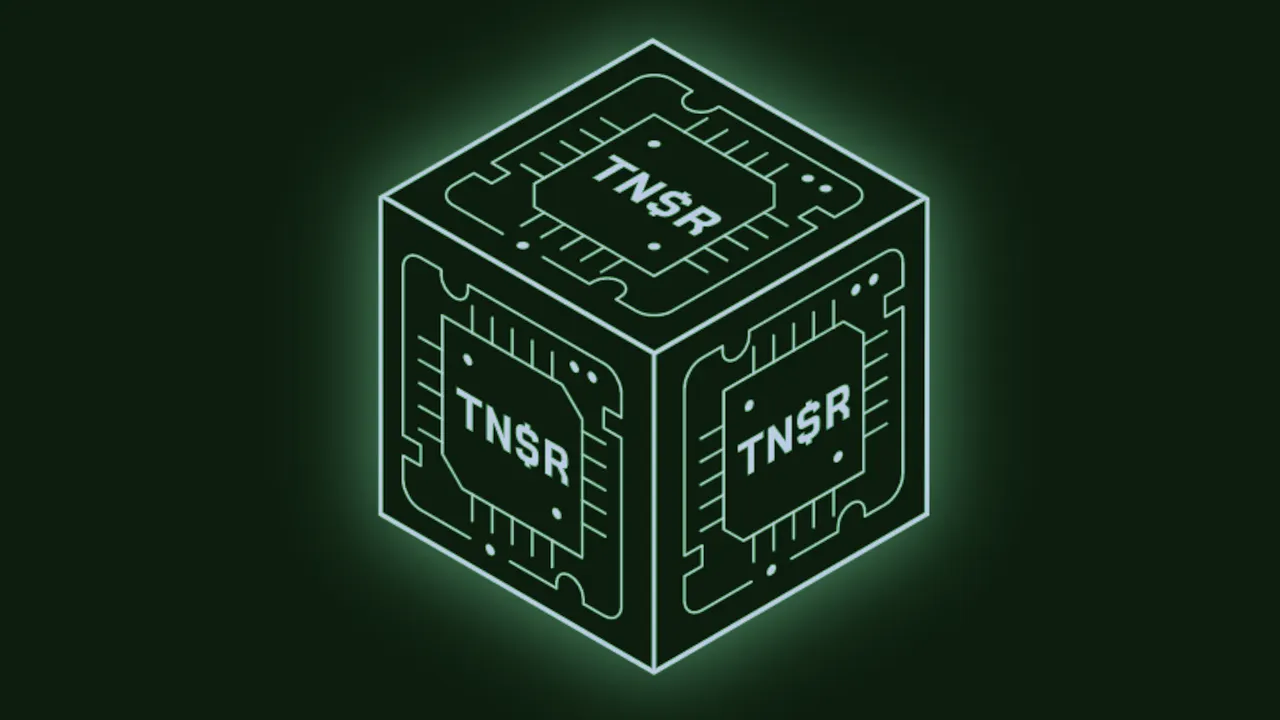Tensor, previously a relatively small contender in the Solana NFT marketplace wars, is quickly capturing market share after taking a page from the playbook of leading Ethereum platform Blur—by targeting “pro” traders and providing “loyalty” rewards for using its marketplace.
The platform launched its “Season 1 airdrop” on Monday, letting Solana NFT collectors claim free reward boxes given out in proportion to their trading activity on the blockchain network. Anyone who bought or sold a Solana NFT on any marketplace over the past six months is eligible, and those who did so on Tensor will receive “25x-50x more rewards,” per a tweet.
It’s extremely close in design, execution, and aesthetic to the model pioneered by Blur, an upstart Ethereum NFT marketplace that debuted last October. In February, Blur rocketed to the top of the charts in terms of Ethereum NFT trading volume as users flipped NFTs en masse to maximize their BLUR airdrop rewards.
Tensor’s Solana NFT trading volume surged to a new single-day high on Monday, according to public blockchain data collected by analytics platform Dune, reaching 23,351 SOL—about $486,000 worth based on the value of Solana by the end of the day, according to CoinGecko. The platform saw nearly 2,800 NFT trades during that span.
According to market-wide data collected by Tiexo, Tensor has facilitated about 19% of all Solana NFT trading volume over the past 24 hours, compared to 60% for market leader Magic Eden. That’s a notable spike, given that Tensor has only accounted for about 6% of Solana NFT trading volume over the past 30 days.
Today, following the surge in trading activity and attention prompted by the airdrop, Tensor announced that it has raised a $3 million seed round led by VC firm Placeholder, with participation from Solana co-founders Anatoly Yakovenko and Raj Gokal along with Solana Ventures, Big Brain Holdings, and MonkeVentures. Notable pseudonymous trader HGE, who also founded rival trading platform Hadeswap, joined as well.
1/6 We're extremely excited to announce our $3m seed round led by @placeholdervc, with participation from @aeyakovenko, @rajgokal, @alliancedao, @SolanaVentures, @BigBrainVC, @HGESOL, @MonkeVentures, @ABCV3NTURES, @solBOOGLE and many other amazing funds/angels. pic.twitter.com/Jn3mf7gS1V
— Tensor | Trade NFTs on Solana ⚛️⚡️ (@tensor_hq) March 7, 2023
In a Twitter thread, the Tensor team said that it began raising seed funding in November as cryptocurrency exchange FTX—which was closely linked to the Solana ecosystem—started to collapse. The startup said that it struggled with convincing some prospective investors, but it ultimately found interested backers within the space.
“Every VC started the conversation by asking us when we're leaving Solana,” Tensor wrote. “We told them we're not, and they proceeded to promptly hang up on us.”
Both Blur and Tensor use marketplace models designed to provide increased liquidity for traders, making it easy to buy and sell NFTs. Tensor uses automated market maker (AMM) trading pools akin to Sudoswap on Ethereum, while Blur's bidding pools facilitate bulk trades and quick flips. Both offer detailed “pro” interface with additional tools for traders.
Much as Blur promised traders airdrop “care packages” with mysterious rewards inside, Tensor is providing traders reward “boxes” that they can claim. Blur ultimately launched its own token for those traders to claim. So far, Tensor has said that the boxes contain “fun things you might like” and suggested that the descriptions hold clues for traders.
On Monday, Tensor announced the launch of a larger second season airdrop that will only reward trading activity on its own platform, rather than the broader Solana NFT market. Traders will receive rewards based on bidding on or listing NFTs, as well as providing liquidity to pools, with a “loyalty” metric and upcoming points leaderboard gamifying the trading process.
Editor's note: This article was updated after publication to clarify the Blur and Tensor marketplace models. We also removed a comment that had been tweeted by Tensor, but then was deleted shortly after the story posted. Tensor's Richard Wu told Decrypt that the comment about benefits for users "may have been misconstrued as a promise" in its original form.

